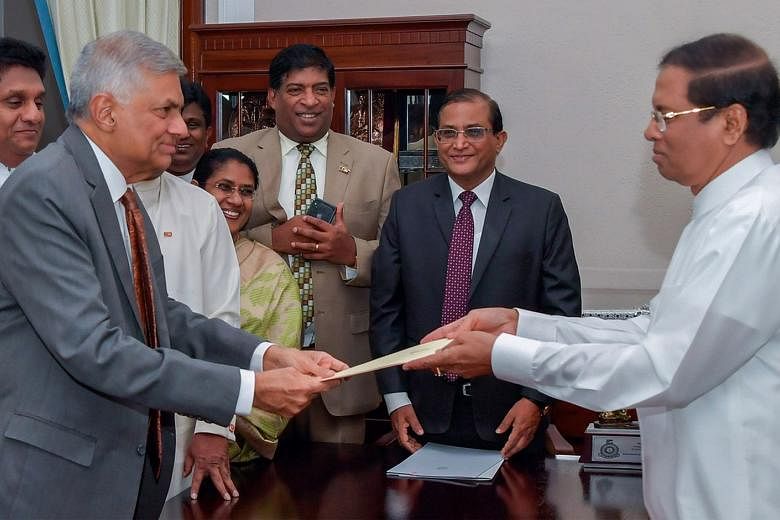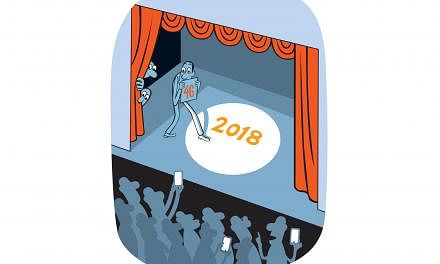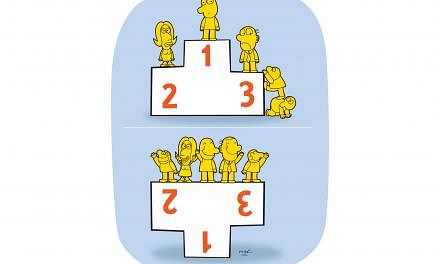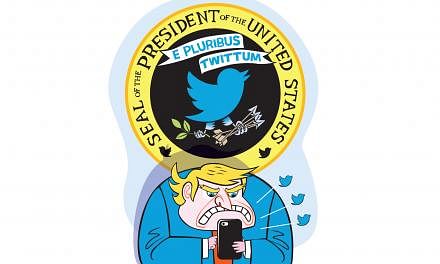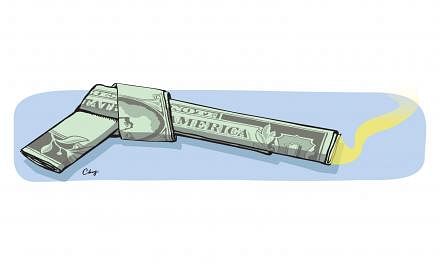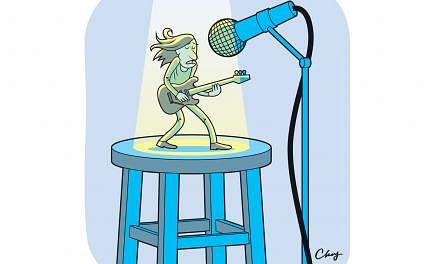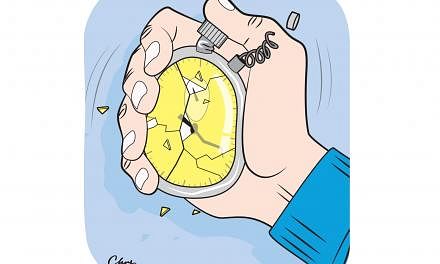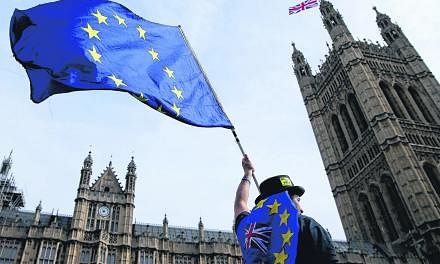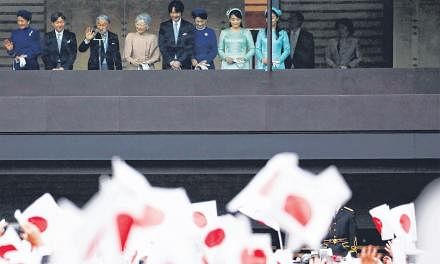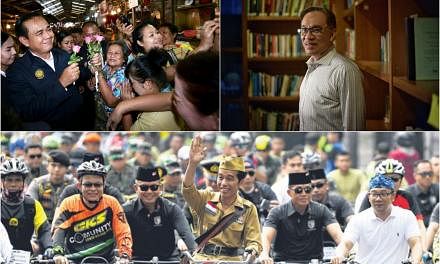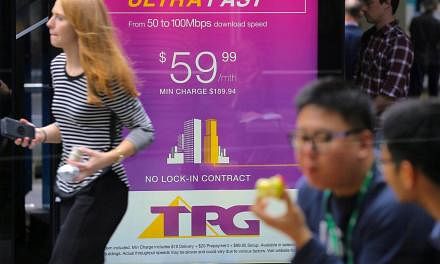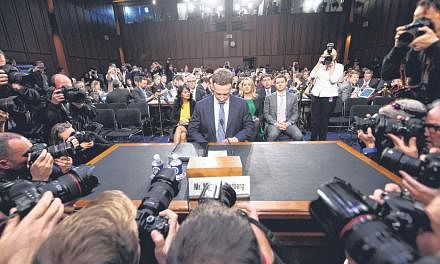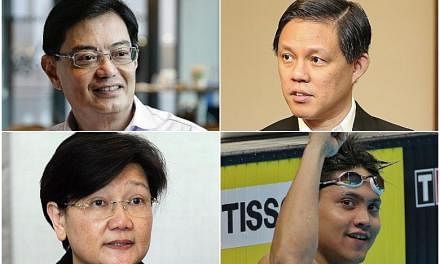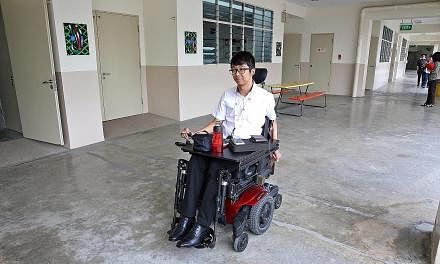On the diplomatic front, 2018 will probably be best remembered for being the year when top leaders of the US and North Korea finally met - the first between a sitting US president and a North Korean leader. The historic summit between President Donald Trump and Mr Kim Jong Un in Singapore on June 12 opened up dialogue on the North's denuclearisation.
While there are signs of greater stability on the Korean peninsula, Asia continues to be rattled by violent conflicts in some South Asian countries, as well as rivalry between the US and China to assert influence over the region.
Uncertainties abound amid a biting trade war between the US and China, even as the latter marks 40 years of reform and opening up this year.
The Straits Times takes a look at eight things that made the news.
1. WORLD'S LONGEST SEA BRIDGE FINALLY OPENS
The Hong Kong-Zhuhai-Macau bridge was officially opened at a ceremony in the southern mainland city of Zhuhai on Oct 23. The crossing was open to traffic the following day.
The US$20 billion (S$27 billion) bridge, hailed as an engineering wonder, is the central plank in China's masterplan to create and develop its own bay area - known as the Greater Bay Area - to rival those in San Francisco, New York and Tokyo. It is designed to withstand earthquakes and typhoons.
The 55km bridge took nine years to build and overran its budget after a two-year delay to its opening.
Now, with the bridge open, travelling time has been cut significantly. It takes 45 minutes instead of four hours to get from Hong Kong International Airport to Zhuhai.
2. POLITICAL CRISIS IN SRI LANKA ENDS
-
$27b
How much it cost to build the bridge.
-
55km
Length of the bridge.
Mr Ranil Wickremesinghe was sworn in as Sri Lanka's prime minister on Dec 16, making a remarkable comeback seven weeks after being ousted by President Maithripala Sirisena under controversial circumstances.
His reinstatement, while an embarrassment for the President, ended one of the country's worst political crises in years.
The nation had been in political gridlock since President Sirisena replaced Mr Wickremesinghe - following differences over policy matters and other issues - with Mr Mahinda Rajapaksa, a former president dogged by allegations of serious human rights abuses.
But Parliament would not get behind Mr Rajapaksa, who resigned on Dec 15.
China was one of the few countries that recognised the appointment of Mr Rajapaksa, who as president relied heavily on Beijing for diplomatic and financial support.
Much of the conflict between Mr Sirisena and Mr Wickremesinghe centred on how much to accommodate Indian interests in the country versus that of the Chinese, according to media reports.
China has invested heavily in the country though India is the traditional regional power. Both countries are vying to build their influence among Indian Ocean nations such as Sri Lanka, which lie along vital shipping lanes.
3. INDIA REPEALS SECTION 377
Thousands marched through New Delhi's streets on Nov 25 in the first gay pride parade in India since the country's highest court repealed a colonial-era ban on gay sex.
The Supreme Court on Sept 6 overturned a 2013 judgment that upheld the law - known as Section 377 - under which gay sex is categorised as an "unnatural offence".
The law, introduced by the British in 1861, carried jail terms of up to 10 years. It was briefly repealed in 2009, but was re-imposed on appeal by religious groups to the Supreme Court.
Hopes were raised for the LGBT (lesbian, gay, bisexual and transgender) community in 2014 when the Supreme Court directed the government to declare transgender a "third gender" and include them in India's Other Backward Class quota. India is now one of more than 120 countries to have decriminalised homosexuality.
4. SINO-JAPANESE TIES WARM UP
Japanese Prime Minister Shinzo Abe concluded a successful visit to China in October, his first formal bilateral summit with Chinese leaders in seven years.
Sino-Japanese relations have "returned to the right track and regained positive momentum", said Chinese President Xi Jinping, as the two inked US$2.6 billion (S$3.6 billion) worth of deals and agreed to better manage sensitive issues.
Experts said the two sides realised they needed to put aside differences to tackle new challenges posed by US President Donald Trump's unilateral and zero-sum approach to foreign relations.
But while relations may have warmed, irritants remain.
Since the summit, Mr Abe has acted to let Japan have its first aircraft carriers since World War II. The proposal to upgrade two flat-top Izumo-class destroyers to enable them to launch fighters with short take-off and vertical landing abilities, like the F-35B stealth fighter, was approved on Dec 18.
Japan will also buy 42 F-35s and 105 F-35As to counter China's growing military power. It has also offered to sell an air defence system to the Philippines, a key security partner, to balance China's assertiveness in the South China Sea.
In another move that upset Beijing, Japan has effectively banned China's Huawei and ZTE from official contracts.
5. CHINA MARKS 40 YEARS OF REFORM, OPENING UP
China marked 40 years of reform and opening up this year, and President Xi Jinping, in a speech celebrating the anniversary on Dec 18, called for the unswerving implementation of reforms on Beijing's terms.
Mr Xi said no one could boss China around, defending his recipe of guided growth for the nation under Communist Party control.
Making his case to some 3,000 officials and guests at the Great Hall of the People, Mr Xi said China would expand efforts at opening up and ensure the implementation of major reforms.
Pressure has mounted on Beijing to accelerate reforms and improve market access for foreign companies as a trade war with the United States weighs on the economy.
But Mr Xi said the Communist Party had been completely correct in its embrace of economic reforms - brushing over the many internal debates that have accompanied the changes, as well as signalling his determination to continue with "top-level design".
Mr Deng Xiaoping's campaign of "reform and opening up" led to unprecedented economic and social transformation. Mr Xi, who took power in 2012, has also pushed through a repeal of Deng-era term limits. China's Parliament passed a constitutional amendment to abolish the two five-year term limit, allowing Mr Xi to stay in office indefinitely.
6. CPTPP IN FORCE AMID AIR OF PROTECTIONISM
Eleven countries on March 8 signed a slimmed-down version of the Trans-Pacific Partnership (TPP) without the US, though the pact keeps the door open in case of a change of heart by the world's largest economy.
Australia on Oct 31 became the sixth country to ratify the renamed Comprehensive and Progressive Agreement for Trans-Pacific Partnership (CPTPP), paving the way for the pact to go into force with more than half of its members officially signed on.
Japan, Canada, Mexico, Singapore and New Zealand had earlier formally ratified the agreement.
Even without the US, the Japan-led CPTPP - also known as TPP-11 - has been called a game changer. It covers many rapidly growing economies that make up around 14 per cent of world trade. CPTPP countries, which include Brunei, Chile, Malaysia, Peru and Vietnam, make up a free trade area worth a combined $13.9 trillion.
Meanwhile, Asean also stood against the protectionist tide by making substantial progress in negotiations for another trade pact - the 16-nation Regional Comprehensive Economic Partnership (RCEP).
This Asean-backed deal involves the group's 10 member nations plus Australia, China, India, Japan, South Korea and New Zealand.
Asean leaders have committed to conclude the RCEP next year.
7. CRICKET STAR WINS POLLS
Pakistanis went to the polls in July, picking a former cricket star with populist ideas, very little political experience and apparent sympathy for the Taleban.
When Mr Imran Khan swept to victory, all eyes were on how he would manage Pakistan's relationships with the United States, China and India.
New Delhi has accused Mr Khan of harbouring an "evil agenda", cancelling rare talks in late September.
India is also concerned about China's investments in the region. Beijing is financing huge infrastructure projectsacross Pakistan, including in parts of disputed Kashmir, which is claimed by both India and Pakistan.
8. BREAKTHROUGH WITH NORTH KOREA
US President Donald Trump met North Korean leader Kim Jong Un at an unprecedented summit in Singapore on June 12 to discuss the North's denuclearisation and the easing of sanctions.
The first-ever meeting between a sitting US president and a North Korean leader - coming together after it was called off and reinstated with weeks to go - capped a year of diplomatic breakthroughs for North Korea.
In the lead-up to the Singapore summit, Mr Kim also held a landmark meeting with South Korean President Moon Jae-in at the Peace House in the Korean Demilitarised Zone. As the two leaders shook hands at the border, Mr Kim invited Mr Moon to briefly step over the demarcation line into the North.
While no concrete deal emerged from the summit, tensions between Pyongyang and Washington eased.
Mr Trump claimed that there was "no longer a nuclear threat from North Korea".
While Mr Kim had, in April, placed a moratorium on nuclear or long-range missile tests, and in May shut his country's only known nuclear test site Punggye-ri, he has yet to clarify whether and when he might dismantle his nuclear warheads and delivery missiles.
There also remains uncertainty about a second summit between Mr Kim and Mr Trump, even though the US leader has said he sees the meeting as possible early next year.
Still, there have been signs that the US campaign for "maximum pressure" has lost steam since the North sought to improve relations with the United States, China and South Korea.

